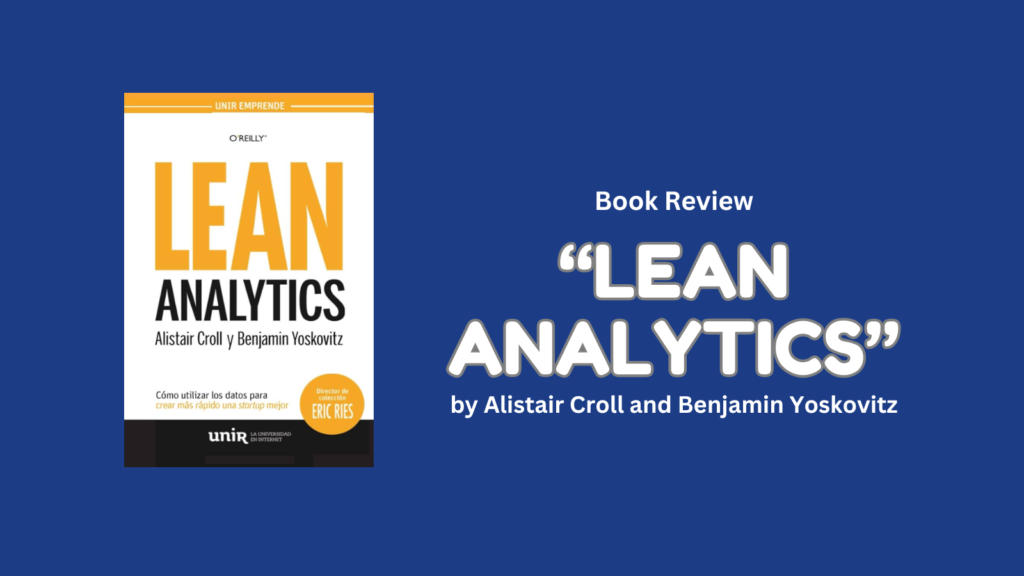“Lean Analytics” by Alistair Croll and Benjamin Yoskovitz is a definitive guide for entrepreneurs and business leaders navigating the treacherous terrain of the modern business landscape. By seamlessly integrating the principles of lean methodologies with the transformative power of data analytics, the book articulates a comprehensive framework that enables startups to make informed, data-driven decisions while fostering an environment of continual improvement and innovation.
One of the central tenets of the book revolves around the notion of establishing a viable business model through the relentless pursuit of product-market fit. By emphasizing the critical importance of identifying and focusing on the most pertinent metrics, the authors highlight the instrumental role that data plays in not only validating assumptions but also in effectively guiding strategic pivots when necessary. This meticulous approach significantly mitigates the risks associated with product development and market penetration, enhancing the likelihood of sustainable business growth.
Moreover, “Lean Analytics” advocates a systematic Build-Measure-Learn feedback loop, underscoring the necessity of constantly iterating and adapting one’s business strategy based on tangible market insights. By expounding upon the significance of conducting rigorous experiments and capturing relevant data points, the book equips entrepreneurs with the tools required to make well-informed decisions, enabling them to steer their ventures toward success amidst volatile market dynamics and evolving consumer preferences.
A notable aspect of the book is its emphasis on the contextual nature of analytics. Recognizing that different business models necessitate the tracking of distinct metrics, the authors delve into the intricacies of tailoring data analysis to suit the unique requirements of various ventures. Whether it involves the meticulous examination of customer acquisition costs for subscription-based models or the comprehensive assessment of user engagement metrics for SaaS (Software as a Service) businesses, “Lean Analytics” adeptly guides readers in discerning the most relevant data points to inform their strategic decision-making processes.
Furthermore, the book delves into qualitative data, highlighting its pivotal role in providing nuanced insights into user behavior, preferences, and pain points. By emphasizing the symbiotic relationship between quantitative and qualitative data, the authors emphasize the importance of leveraging both forms of data to develop a comprehensive understanding of customer needs and aspirations, thus enabling entrepreneurs to deliver tailored solutions that resonate with their target audience.
Additionally, “Lean Analytics” underscores the significance of cohort analysis in unveiling valuable trends and patterns within consumer behavior over time. By dissecting user data into distinct groups based on shared characteristics and behaviors, entrepreneurs can discern crucial insights into customer retention, engagement, and the long-term value of their user base. This nuanced approach to data analysis enables startups to refine their customer acquisition and retention strategies, fostering sustainable growth and bolstering their competitive edge in the market.
Beyond the intricacies of data analysis, “Lean Analytics” also emphasizes fostering a culture of continual learning and adaptation within the organizational framework. By advocating a mindset of embracing failure as a stepping stone toward success, the book instills a sense of resilience and agility within entrepreneurs, encouraging them to view setbacks as valuable learning opportunities that pave the way for iterative refinement and improvement.
In essence, “Lean Analytics” emerges as an indispensable resource for entrepreneurs, business leaders, and industry professionals seeking to navigate the complexities of the contemporary business landscape. By amalgamating the principles of lean methodologies with the transformative power of data analytics, the book serves as a guiding light for startups, enabling them to make informed decisions, mitigate risks, and capitalize on emerging opportunities, all while fostering a culture of continuous innovation and growth.


